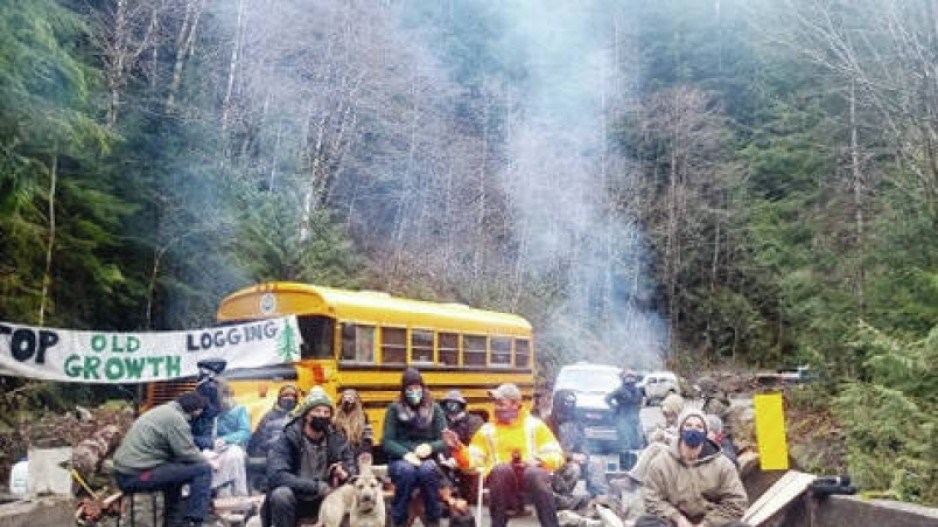The B.C. government has agreed to halt logging in two areas with old growth forests on Vancouver Island, at the request of three First Nations.
The two areas in question are the Fairy Creek watershed – 1,199 hectares in size, including 884 hectares of old forest – and the central Walbran west of Lake Cowichan, which is 1,489 hectares in size, 1,150 hectares of which is old growth.
Protests against logging those areas have been ongoing for weeks, with many arrests made, despite the fact at least one of the First Nations, the Pacheedaht, had asked protesters to stand down.
On Monday, the Pacheedhat and two other First Nations, the Huu-ay-aht and Ditidaht, announced they would ask the B.C. government to implement a two-year moratorium on logging those two areas.
Premier John Horgan announced Wednesday that his cabinet has approved that request.
Logging will continue in second-growth forests in the region, but will cease in the central Walbran Valley and Fairy Creek area.
Horgan said that the province already set aside 200,000 hectares of old growth to protect it from logging, as per the recommendations of an independent panel on old growth forests.
The central Walbran was not to be part of that conservation package, Horgan said, as the Pacheedaht weren't ready to have those forests set aside, since the First Nation is actively involved in logging. But Horgan said the Pacheedaht have since agreed to set that area aside as well.
"I was very pleased to see that, along with Fairy Creek, they also requested that the 2,000 hectares within the central Walbran would also be deferred for the next two years," Horgan said.
Teal Jones has cutting rights in the Fairy Creek area, which is part of TFL-46. Asked if the company would be compensated for being prevented from harvesting in an area to which they have cutting rights, Horgan said it wouldn't be.
"It is a non-compensable deferral," Horgan said. "But over time there will be costs to moving in this direction."
Though the area in question is Crown forest land, the Pacheedaht, Dididaht and Huu-ay-aht have a say in what happens, as they have aboriginal rights over the land in their traditional territory. That is especially true now, with the B.C. government's formal adoption of the United Nations Declaration on the Rights of Indigenous Peoples (UNDRIP), which Horgan cited as a guiding principle in his government's decision.
"We're on a path that B.C. has not been on, ever," Horgan said. "We are changing the way we do business on the land, and that is hard work. The foundation of that (is) the rights of indigenous peoples, and that is a result of ...case law that made it abundantly clear that rights and title exist in British Columbia."
The two-year deferral is intended to give the three First Nations more time to develop resource-stewardship plans for their lands.




